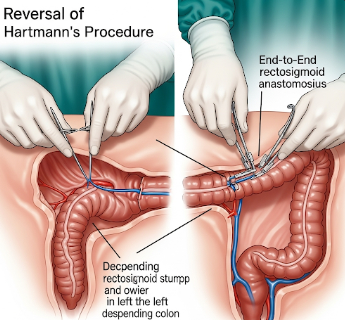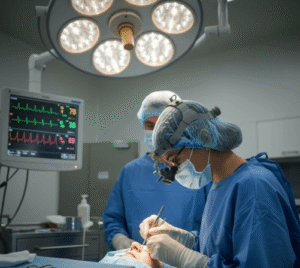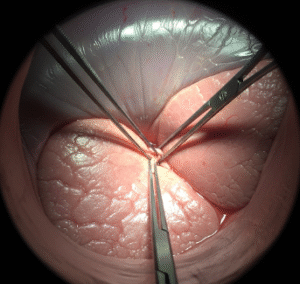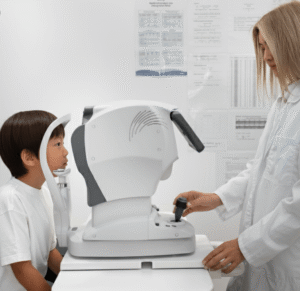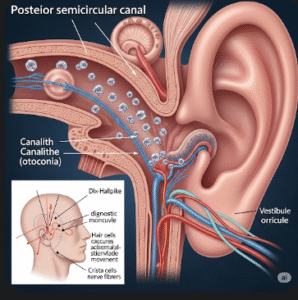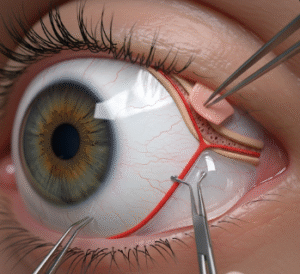Overview
Reversal of Hartmann’s Procedure is a surgical operation aimed at restoring normal bowel continuity after a previous Hartmann’s procedure, which typically involves removal of part of the colon with temporary colostomy. This reversal allows patients to resume normal bowel function and eliminate the need for a stoma.
South Korea is known for highly skilled colorectal surgeons, advanced minimally invasive techniques, and comprehensive perioperative care, ensuring safer surgery and faster recovery.
What is Reversal of Hartmann’s Procedure?
This procedure involves reconnecting the remaining colon to the rectum after previous removal of diseased bowel. Key points include:
✔ Restores intestinal continuity and bowel function.
➔ Eliminates the temporary colostomy and stoma bag dependency.
● Performed using open or laparoscopic techniques, depending on patient condition and surgeon preference.
★ Technically complex due to scar tissue and adhesions from the previous surgery.
It is indicated for patients who previously underwent Hartmann’s procedure for diverticulitis, bowel obstruction, trauma, or cancer and are medically fit for reversal.
What are the Benefits?
Reversal of Hartmann’s Procedure provides several advantages:
✔ Restores normal bowel continuity and function.
➔ Eliminates the colostomy, improving quality of life and body image.
● Reduces complications associated with long-term stoma management.
★ Can be performed laparoscopically, reducing pain and hospital stay.
➤ Improves overall digestive health and lifestyle.
Procedure Details
1) How should I prepare for Reversal of Hartmann’s Procedure?
Preparation focuses on medical optimization and minimizing surgical risks:
✔ Medical assessment: Blood tests, imaging (CT, colonography) to evaluate remaining colon and rectum.
➔ Bowel preparation: Cleansing regimen to reduce infection risk.
● Medication review: Blood thinners and relevant medications adjusted.
★ Preoperative counseling: Discuss procedure, risks, expected recovery, and stoma management prior to reversal.
➤ Nutrition optimization: Ensures patient is fit for surgery and recovery.
2) What happens during the Reversal of Hartmann’s Procedure?
The surgery is performed in a sterile operating room under general anesthesia:
✔ Incision: Previous abdominal incision may be used; laparoscopic ports may be added for minimally invasive approach.
➔ Adhesion release: Scar tissue from previous surgery carefully dissected.
● Colonic reconnection: Remaining colon is mobilized and anastomosed to the rectum.
★ Leak prevention: Surgeons ensure tension-free connection; sometimes temporary diverting ileostomy is used.
➤ Closure: Abdominal wall closed; drains may be placed if needed.
✔ Procedure duration: Typically 2–4 hours depending on complexity.
Korean colorectal surgeons emphasize meticulous dissection, careful handling of adhesions, and precise anastomosis to minimize complications.
3) What happens after Reversal of Hartmann’s Procedure?
Post-operative care focuses on pain management, infection prevention, and gradual return of bowel function:
✔ Hospital stay: Usually 5–10 days depending on recovery and complications.
➔ Pain management: IV and oral analgesics.
● Diet: Gradual reintroduction of oral intake from liquids to solid foods as bowel function returns.
★ Physical activity: Encouraged early mobilization to prevent complications.
➤ Follow-up: Imaging or contrast studies may be performed to ensure anastomosis integrity; regular follow-ups to monitor bowel function.
Risks / Benefits
Possible Risks:
✔ Infection or abscess formation
➔ Anastomotic leak
● Bowel obstruction from adhesions
★ Bleeding or injury to surrounding organs
➤ Need for temporary or permanent stoma in case of complications
Major Benefits:
✔ Restores normal bowel function and continuity
➔ Eliminates colostomy and stoma dependency
● Improves quality of life and body image
★ Can be performed laparoscopically to reduce pain and recovery time
➤ Reduces long-term stoma-related complications
Recovery and Outlook
✔ Immediate recovery: Pain, mild bloating, and limited mobility in first few days.
➔ Hospital stay: Usually 5–10 days; longer if complications arise.
● Activity: Gradual return to normal activities; heavy lifting restricted for 6–8 weeks.
★ Bowel function: Regular bowel movements typically resume within 1–2 weeks.
➤ Long-term outcome: Most patients regain normal bowel continuity and improved lifestyle; some may have minor bowel habit changes.
When To Call the Doctor
Contact your doctor immediately if you notice:
✔ Fever, chills, or signs of infection
➔ Severe abdominal pain or distension
● Persistent vomiting or inability to pass stool or gas
★ Drainage of pus or fecal matter from incision
➤ Signs of anastomotic leak or bowel obstruction
Best Korea Option / Process
South Korea provides expert reversal of Hartmann’s Procedure services with:
✔ Leading hospitals: Samsung Medical Center, Asan Medical Center, Severance Hospital Colorectal Surgery.
➔ Experienced colorectal surgeons specializing in complex bowel reconstructions.
● Advanced laparoscopic and open surgical techniques for safer and faster recovery.
★ Comprehensive care: Pre-op evaluation, surgery, post-op monitoring, and rehabilitation.
➤ Medical tourism support: Translation services, appointment coordination, and continuity of care for international patients.
✅ Highlights:
✔ Reversal of Hartmann’s Procedure restores bowel continuity and eliminates stoma
➔ Improves quality of life, digestive function, and body image
● Minimally invasive approaches reduce recovery time and complications
★ Risks include infection, anastomotic leak, bowel obstruction, and need for repeat surgery
➤ Korean hospitals provide expert surgeons, advanced techniques, and comprehensive post-op care

